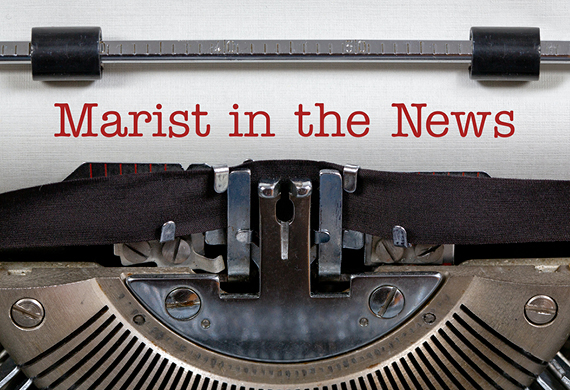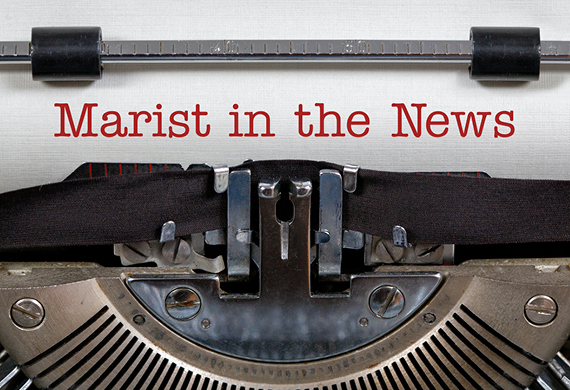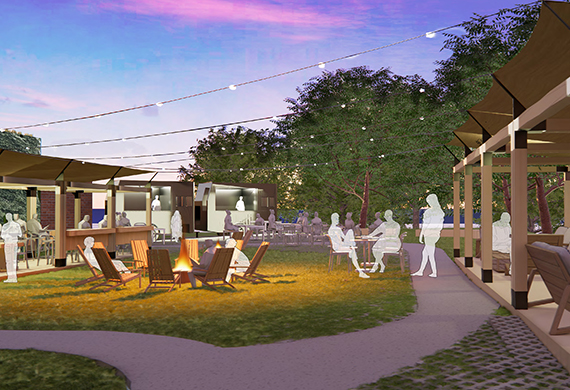Diplomatic Community: Students in the Model United Nations Course Excel at National Conference
April 23, 2018—In March, 5,000 college students from all over the world descended on New York City for a seminal experience: the National Model United Nations Conference. Fifteen Marist students were among them.
They were there as part of Marist’s Model UN course, offered by the Department of Political Science and taught by Assistant Professor of Political Science Juris Pupcenoks.
Students apply in the fall for the course, which is offered in the spring semester. The workload is heavy because the national conference at the United Nations in New York typically takes place in late March, leaving just two months at the beginning of the spring semester for students to research the country their team has been assigned, learn parliamentary rules, and work on how to write resolutions.
The course has been offered three times at Marist, and Pupcenoks hopes to see it continue. The students’ participation in the Model UN conference is supported by the Office of Academic Affairs and the School of Liberal Arts.
Associate Dean for Academic Affairs Kate Donham has high praise for the course and for Pupcenoks. “This course fulfills part of the Marist mission that is dedicated to preparing students to succeed in a global community of the 21st century—success that depends on knowledge and compromise, both of which are taught in the course. However, the particular enthusiasm and insight Dr. Pupcenoks brings deepens the student experience. His area of expertise is international conflict, and he is also just a terrific person and teacher. It says a lot about his dedication that he coordinates such a big undertaking year after year,” said Donham.
Pupcenoks’ energy and enthusiasm for the course is evident; as a college student, he participated in Model UN and sees it as an enormous skill-building opportunity for students. “Writing, public speaking, working with all kinds of people—this course and the conference offer a chance to improve these critical skills.”
This year, the Marist team was assigned Lithuania, and they hit the ground running in January, learning everything possible about the country: its history, foreign policy, and culture. To prepare for the conference, Pupcenoks arranged for his students to practice with the joint Model UN team from neighboring colleges Vassar and Dutchess Community College.
At the conference, Marist students were on nine different committees, acting out real roles. Daniella Sesto ’20 was assigned to the international telecommunication committee, which is comprised of 48 countries. “Taking on the persona of a country is exciting,” she said.
Giovanni Gonzalez ’18 took the class two years ago and served as a teacher’s assistant (TA) this year. Although he was very interested in foreign relations initially, he now hopes to work with a non-governmental organization (NGO) following graduate school. “Model UN gives you a relatively real insight into how diplomacy works: how good and giving it can be, but also how frustrating it can be. It brings theory into practice,” he said,
Sesto decided to apply for the course because she wanted a challenge. “I study American politics,” the political science major explained. “But I wanted to think through the real life challenges the UN is facing and consider how to help society, so this course was a great opportunity.” Sesto says the five days at the conference were “pure exhaustion,” but an unforgettable experience.
Pupcenoks was proud of the effort students put forth. They were well-prepared and in the end the Marist team won its first Honorable Mention Delegation Award.
Gonzalez said that as a TA this time around, he had the opportunity to see significant growth in many students during the semester. “Students became more confident in themselves, particularly in the area of public speaking,” he noted.
“For me, learning to write in such a different, specific way was a key experience. The UN has its own language,” said Sesto. “I became much more concise, and my writing and speaking skills were strengthened. I’d recommend this course to anyone. It was intense and a 100 percent unique experience.”



